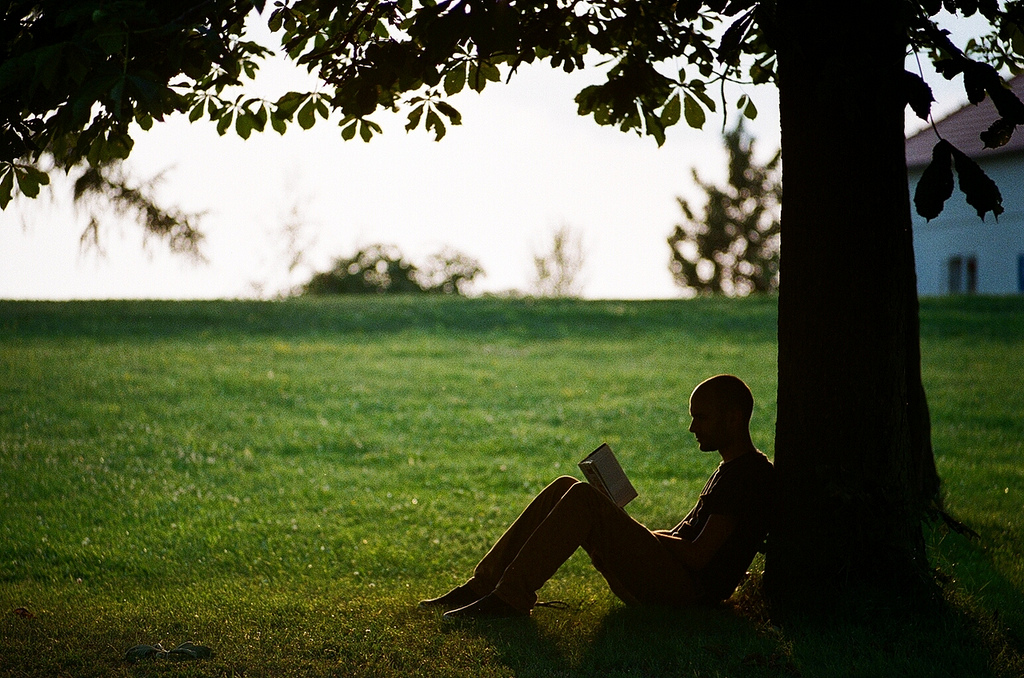“When the beginnings of self-destruction enter the heart it seems no bigger than a grain of sand.” – John Cheever
Confusing, isn’t it?
Perhaps you’re having problems finding a career you love?
Or maybe your day-to-day life is making you unhappy?
Or are you struggling to pursue a passion you’ve held close for years.
I’ve faced all of these problems, but several people helped me work through them.
One of these people was the American novelist John Cheever.
I never met John Cheever, and he died when I was one.
So how could John have helped me?
I spent hours reading and reading The Journals of John Cheever. I also read the A Writer’s Diary by Virginia Woolf and Vladimir Nabokov’s memoir Speak Memory.
And in each of these personal works, I learnt hard lessons that helped me view the world a little differently.
Here are five of those lessons:
1. Discipline is more important than passion
Don’t let anyone tell you otherwise.
Anytime, I avoid writing because I’m tired, bored or devoid of ideas, I remind myself of the importance of discipline.
Almost every writer I’ve read about sacrificed to pursue their work. They rose early or worked late into the night and the wrote because they had to and not just when they were inspired.
Virginia Woolf wrote most mornings until the early afternoon. Today, it’s striking to listen to read about scribbles of pen on paper and page.
“I generally write with heat and ease till 12.30; and thus do my two pages. So it will be done, written over that is, in 3 weeks, I forecast from today,” she writes.
Cheever bemoans his lack of discipline throughout his journals. However, in an entry written shortly before his death in 1982, he recognises he possessed this essential, and now-departing, personal strength.
“I have climbed from a bed on the second floor to reach this typewriter. This was an achievement. I do not understand what has happened to the discipline, or character, that has brought me here for so many years,” he writes.
2. It’s productive to have a side-interest or hobby
Yes discipline is important, but not at the cost of day-to-day life.
For a long time, I thought there was nothing more important than filling a blank page with sentences.
Now, I spend time swimming, running, reading, working, eating, meeting friends and sit quietly.
I do other things that aren’t writing.
And I’m OK with that.
Even if you’ve found a passion, side-interests are essential.
When you’re in danger of burning out, taking time pursue a side-interest will stoke the embers of what inspires you.
Woolf chronicled her long walks while Cheever wrote dozens of entries about swimming, cycling, and meeting friends.
“I do have trouble with the dead hours of the afternoon without skating, skiing, bicycling, swimming, or sexual discharges or drink,” he writes.
Nabokov had little time for eating, socialising or drinking coffee with friends.
Instead, he loved to solve chess problems and study butterflies. Both of these interests informed his work. And his novel, Zashchita Luzhina (The Luzhin Defense), features an insane chess player.
He writes in his memoir, “And the highest enjoyment of timelessness…is when I stand among rare butterflies and their food plants. This is ecstasy, and behind the ecstasy is something else, which is hard to explain. It is like a momentary vacuum into which rushes all that I love.”
If you’re having trouble finding a side-interest or hobby to complement your passion, exercise is the most simple and effective change you can make to your life.
3. Even the greats are insecure
I don’t like writing posts like this. I worry how people will perceive me, and if I’ll upset or offend anyone.
I’m insecure, but (sometimes) I write these kind of posts anyway.
Virginia Woolf taught me even the greats were insecure about their work and that if I didn’t worry, then something would be amiss. Criticism can even help writers improve their craft.
She writes, “What is the use of saying one is indifferent to reviews when positive praise, though mingled with blame, gives one such a start on, that instead of feeling dried up, one feels, on the contrary, flooded with ideas?”
Cheever wasn’t one for paying too much attention to his critics.
He almost never re-read his works or the reviews about them.
That said, even Cheever occasionally dreamt (worried) about how people saw him.
He writes in his journal, “…and last night I had a dream that a brilliant reviewer pointed out that there was an excess of lamentation in my work.”
One way to overcome insecurity is to practice expressing gratitude.
I try to do this by thanking those who take time to read or even share my work, and by appreciating that writers today have more places to express themselves than before.
4. It’s natural to consider mortality and death
Several years ago,I became a father for the first time.
It was a happy time but after my son was born, I dreamt about death and how my life would end.
I knew I wasn’t depressed but, for a while, I worried there was something wrong with me. Then a friend (also a recent father), confessed the same thoughts.
As we get older, it’s natural to consider mortality and death. To pretend death isn’t exist is to live in ignorance of the bond we all share.
There are echoes of death in Woolf’s, Cheever’s and Nabokov’s memoirs, and these echoes show it is *unnatural* to never consider our place.
In the opening pages of Speak Memory, Nabokov unpacks the notion of time as a single linear event. He challenged the reader to see not just the end point of life, but the beginning of life as well.
He writes, “….my mind has made colossal efforts to distinguish the faintest of personal glimmers in the impersonal darkness on both sides of my life.”
Rust Cohle would agree.
5. There’s a place for happiness and sadness
The journals of Cheever, Woolf and Nabokov taught me that keeping a journal helps identify negative patterns, thoughts and behaviours.
Woolf writes about her depression at length. In 1934, she describes the period after she finished her experimental novel the Waves.
“I was, I remember, nearer suicide, seriously, than since 1913.”
John chronicles his alcoholism at length in his journal and towards the end of his book, it’s hard not the feel the same sense of relief as he does upon *finally* becoming sober.
I don’t want to be too morbid here.
The journals of these authors aren’t all filled with dark life lessons and lamentations. Nabokov writes at length about his love for his mother and father, his son and Russia of old.
And I’ve yet to read a more powerful personal mission statement than Cheever’s aspiration:
“To write well, to write passionately, to be less inhibited, to be warmer, to be more self-critical, to recognise the power of as well as the force of lust, to write, to love.”
And Finally…
I’m not going to lie and pretend there’s something in these journals for everyone. These are just lessons that authors John, Virginia and Vladimir taught me.
Perhaps they affected me because I’m interested in the lives of other authors.
I feel as if I know them because their problems and struggles are one-part unique and another-part universal.
I share these five lessons here because I learnt on the page that words can help us find the way.
What life lessons have you learnt in strange places?
Please let me know in the comments section below.
Photo by Marketa






Bryan, a very interesting post that I enjoyed. The point that struck me most was the benefit of a sideline to our passion. I’m taking some time out away from employment at the moment and have several writing projects lined up. But I’m not going to just do writing as it seems daft to just to swap one activity (the day job) that soaked up most of my time for another single activity.
I want to give space and time to other areas of life. To blend time at the keyboard with time with family, cycling, walking, gardening and keeping the home ticking over.
I believe the variety will benefit the writing and that a steady disciplined pace can work well for artististic pursuits.
So your words are encouraging and timely.
Thanks.
Hi Peter,
I’m glad you enjoyed the post and found it encouraging. I try to run most days and I find that after I run, my writing improves and I come up with more creative ideas for my posts. I also find that side interests give me fuel for the written word.
Thanks for reading.
Brave, creative, think-outside-the-box post. Well done Bryan. I loved it. As writers, we are constantly barraged with ‘write, write, write.’ However, I find I am most creative when I take a break do some physical exercise. For me, it’s dancing or hiking. Or I meditate. Then I can write for hours. It’s all about the mind, body and soul in the writing life. Take care of all three, and you have a winner! Best to you. Lee
Thanks for sharing! I found this post to be true and inspiring. In all honesty, discipline is one of my biggest challenges.
Lee,
Physical exercise helps me ‘write, write, write’. You’re right, it’s about a balance between mind, body and soul.
Chrissy,
I’m glad you found the post helpful. Discipline is tough but it takes practice.
Thanks for reading.
A delightful read with wisdom and inspiration. Your words on discipline and insecurity spoke the strongest to me at this time. I believe that we always get what we need when we needed it. Thanks for the inspiration.
Hi Bryan,
There are regular “must do” things in our life and there things you that make you feel living this life. Writing well is difficult and you might want to sacrifice your side by activities to improve your writing. Work more and you’ll earn more. However, don’t forget that life goes by.
Bryan, you are absolutely right! Writing has been my passion for more than 35 years. Thankfully, I learned at an early age that one must take time to enjoy other pursuits along life’s path. They make everything – including your writing – all so much better. Thank you for the sage advise.
Hi ion,
Writing is difficult but it’s also worth pursuing. I found that side interests help me write more often (because they give me things to write about)
Dan,
Thanks for reading my post. It’s always good to hear from another writer.